Description
Abstract
A Study of Reading Habits of Undergraduates of Nnamdi Azikiwe University, Awka was carried out to find out the reading habits of undergraduates of Nnamdi Azikiwe University, Awka. The researcher deemed it worthwhile embarking on this, because of the alarming rate at which undergraduates fail in their various examinations. This poor performance is largely due to the poor reading habits and poor reading culture. In fact, previous studies on reading have identified poor reading skills as the causes of poor performance of undergraduates in all academic areas. Statistical data was drawn from faculties of Arts and Physical Sciences in the Departments of English Language, Music, Linguistics, Computer Sciences, Biochemistry and Statistics. The data was drawn from twenty final year undergraduates in each of the departments mentioned above and the researcher used the final year undergraduates considering the number of years they have spent in the university. To investigate their reading habits, a thirty six item structured questionnaire was used to collect data and the data collected were analyzed using frequency counts and percentage. The findings made were used to conclude that undergraduates have poor reading habits and these poor habits towards reading are blamed on their belief that reading is not a pleasurable and lifelong activity but as a means to succeed in their various examinations.
CHAPTER ONE
INTRODUCTION
1.1 Background to the Study
What music is to the spirit, reading is to the mind. Reading challenges, empowers, bewitches and enriches. We perceive little black marks on white paper or a PC Screen and they move us to tears, open up our lives to new insights and understandings, inspire us, organize our existence and connect us with all creations. Surely there can be no greater wonder. Fischer 7
Reading enriches our thoughts, widens our vision and enhances our knowledge. The more we read, the better our power of expression in both written and spoken forms will be. Reading is an aspect associated with literacy. It is a vital behavioural factor in a knowledge based society and an emerging knowledge economy. It is an indisputable fact that reading is a very essential factor in all human endeavors. In fact, reading occupies a prominent place in all learning proficiency. Generally, it exposes people to the accumulated and ageold wisdom of human civilization. Mature readers, when reading, often bring to the text their experiences, abilities and interests; and the text in turn offers them a challenging opportunity that of expanding those experiences and abilities to find out new interest. This, simply put, tells us that reading is an exciting experience where ideas interact between the written text and the reader of the text. A reader who can comprehend what an author has written will be able to relate main idea to detail and vice versa Leedy
Table of Contents
Title page i
Approval page ii
Certification iii
Acknowledgements iv
Dedication v
Table of Contents vi
Abstract ix
CHAPTER ONE: INTRODUCTION
1.1 Background to the Study 1
1.2 Statement of the Problem 9
1.3 Purpose of the Study 10
1.4 Significance of the Study 11
1.5 Scope and Limitation of the study 12
1.6 Research Questions 12
CHAPTER TWO: REVIEW OF RELEVANT SCHOLARSHIP
2.0 Conceptual Framework 13
2.1 The Concept of Reading: An Overview 13
2.2 Approaches to Reading 19
2.3 Bad Reading Habits 22
2.4 Second Language L2 Learner and Reading Difficulties 24
2.5 Components of Reading and Relationship between Reading and Writing 27
2.6 Major Variables in Reading and Problems of Reading 30
2.2 Theoretical Framework 34
2.3 Empirical Studies 34
2.4 Summary of Literature Review 48
CHAPTER THREE: METHODLOGY
3.1 Research Design 50
3.2 Area of Study 50
3.3 Population of the Study 50
3.4 Sample and Sampling Technique 51
3.5 Research Instrument 51
3.6 Validation of Instrument 51
3.7 Administration of Instrument 52
3.8 Method of Data Collection 52
3.9 Method of Data Analysis 52
CHAPTER FOUR: PRESENTATION AND ANALYSIS OF DATA
4.1 Presentation and Analysis of Data 53
CHAPTER FIVE: SUMMARY, RECOMMENDATIONS AND SUGGESTIONS FOR FURTHER RESEARCH
5.1 Summary of the Findings 66
5.2 Implication of the Study 67
5.3 Recommendations 67
5.4 Suggestions for further Research 70

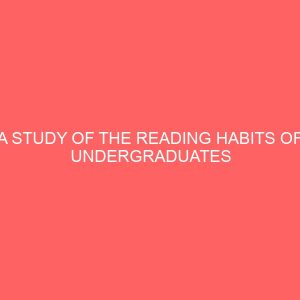

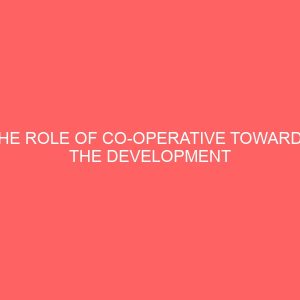

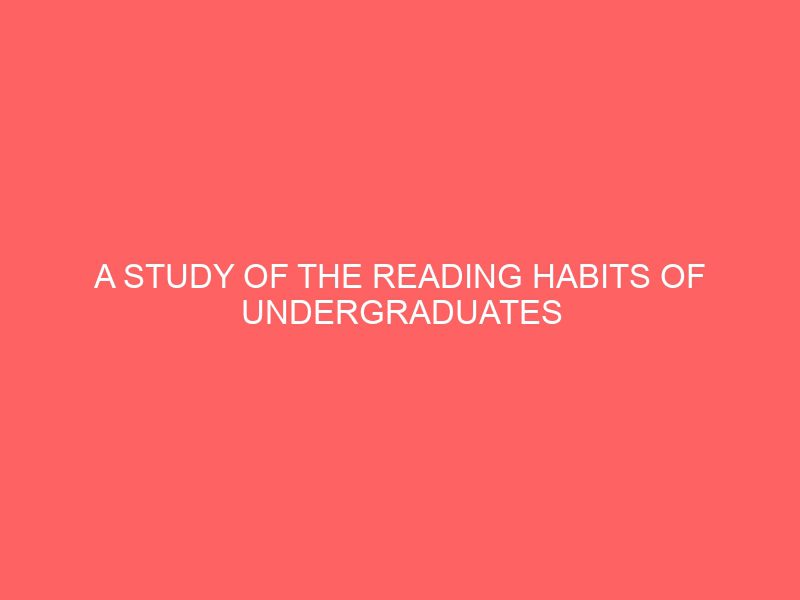
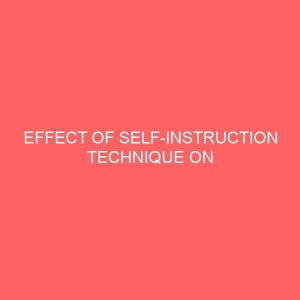
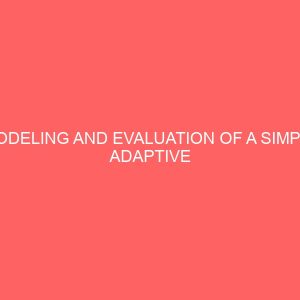
Reviews
There are no reviews yet.